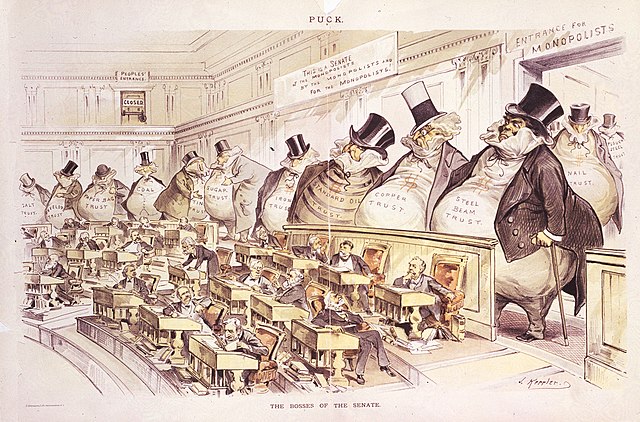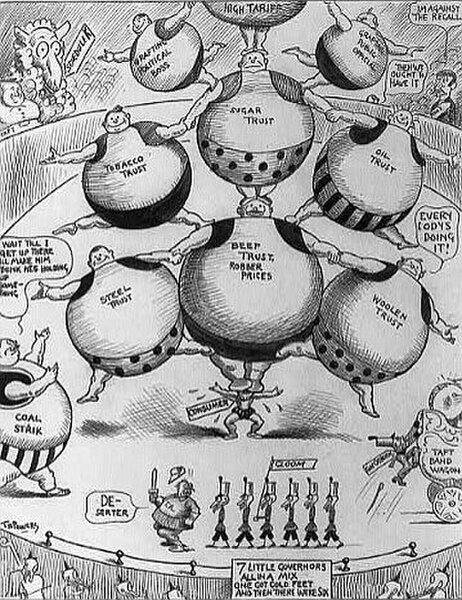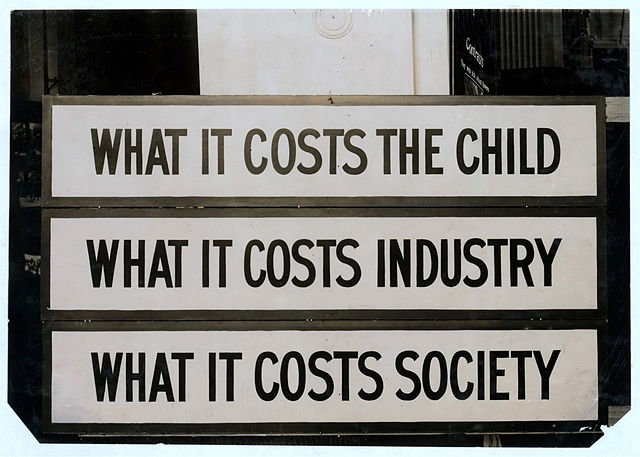The Progressive Era (1896–1917) was a period in the United States during the early 20th century of widespread social activism and political reform across the country. Progressives sought to address the problems caused by rapid industrialization, urbanization, immigration, and political corruption as well as the enormous concentration of industrial ownership in monopolies. Progressive reformers were alarmed by the spread of slums, poverty, and the exploitation of labor. Multiple overlapping progressive movements fought perceived social, political, and economic ills by advancing democracy, scientific methods, and professionalism; regulating business; protecting the natural environment; and improving working and living conditions of the urban poor.
The Awakening: "Votes for Women" in 1915 Puck magazine
Christmas 1903 cover of McClure's features a muckraking expose of Rockefeller and Standard Oil by Ida Tarbell.
Charlotte Perkins Gilman (pictured) wrote these articles about feminism for the Atlanta Constitution, published on December 10, 1916.
Monopoly brothers—Politically powerful trusts created high prices all carried by hapless little consumer 1912; by Thomas Powers
Progressivism in the United States
Progressivism in the United States is a political philosophy and reform movement. Into the 21st century, it advocates policies that are generally considered social democratic and part of the American Left. It has also expressed itself with right-wing politics, such as New Nationalism and progressive conservatism. It reached its height early in the 20th century. Middle/working class and reformist in nature, it arose as a response to the vast changes brought by modernization, such as the growth of large corporations, pollution, and corruption in American politics. Historian Alonzo Hamby describes American progressivism as a "political movement that addresses ideas, impulses, and issues stemming from modernization of American society. Emerging at the end of the nineteenth century, it established much of the tone of American politics throughout the first half of the century."

The Bosses of the Senate, a cartoon by Joseph Keppler depicting corporate interests—from steel, copper, oil, iron, sugar, tin, and coal to paper bags, envelopes and salt—as giant money bags looming powerfully over the tiny, weak U.S. Senators
A poster highlighting the situation of child labor in the United States in the early 20th century
Women marching for the right to vote, 1912
Upton Sinclair's The Jungle exposed Americans to the horrors of the Chicago meatpacking plants.








